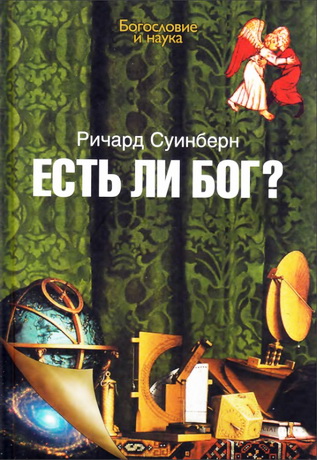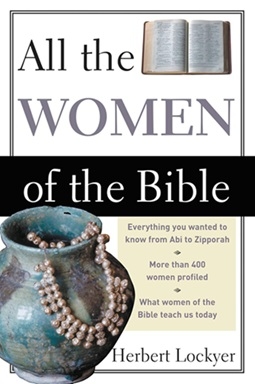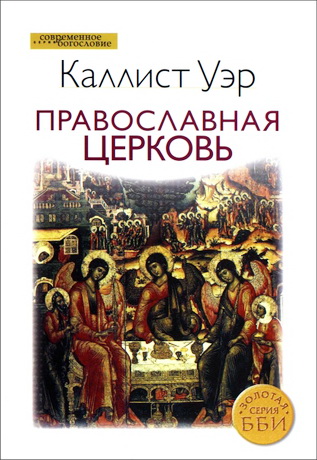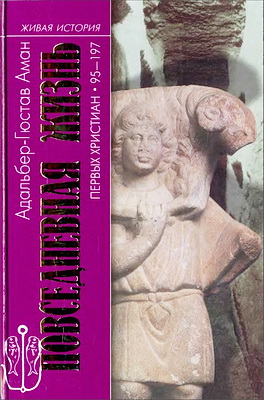
Lockyer - All the Women of the Bible
Herbert Lockyer - All the Women of the Bible
Zondervan Publishers, 1988. - 320 p.
ISBN-10: 9780310281511
ISBN-13: 978-0310281511
In 1956, during one of his business trips to Europe, Pat Zondervan, of the Zondervan Publishing House, and I met in a London hotel to talk over matters of mutual interest. Having been associated with both Pat and Bernie Zondervan from the small beginning of their now large publishing concern, I was always excited over any new venture undertaken. I was not prepared, however, for Pat’s surprising proposal that I should author a large volume on All the Men of the Bible. But after a full discussion of the project, I consented, somewhat reluctantly, to the commission. At the time I did not realize that the Bible mentions some 3,000 men, but when I did I became frightened at the task of trying to delineate God’s portrait gallery of male characters. Well, the volume appeared in 1958, and has gone through many editions.
The most logical companion study to follow would have been All the Women of the Bible, but in 1955 there had appeared a book bearing this title by the gifted authoress, Edith Deen. Published by Harper and Brothers, New York, this entrancing and incomparable coverage of the theme is the most comprehensive one extant, and one which no student of the female characters of Scripture should be without. It is superb in its classification and exposition of every known and unknown woman in the Bible, and will remain a classic in its field. Along with multitudes of other Bible lovers I acknowledge with gratitude my debt to Edith Deen for her monumental work.
Having received scores of requests from readers for a further companion on the women of the Bible, the publisher urged me to accede to his desire to author this volume. After much prayerful thought I decided to undertake the assignment in my own particular style, hence this further addition to the All series.
A continuous sojourn for over a year in the world of Bible women, caused one to realize how intimately they were associated with the unfolding purpose of God. With the first woman He fashioned there came the first promise and prophecy of His redemptive plan for mankind. Because He is no respector of person or sex, He used — and still uses — women to accomplish His beneficent ministry in a world of need. While it is sadly true that it was a woman who brought sin into God’s fair universe, it was likewise a woman who gave the world the Saviour from its sin. Furthermore, the student of Scripture female biography is impressed with the fact that men and nations are influenced by the quality of women; and it is still true that “the hand that rocks the cradle rules the world.”
Another impressive fact I discovered was the way in which women in Bible times find an echo in the traits of women today, as Dr. W. Mackintosh Mackay so convincingly proves in his two volumes on Bible Types of Modern Women, and as Dr. George Matheson does in The Representative Women of the Bible. In the latter work, Dr. Matheson portrays fifteen Bible women as representing different types of female qualities as well as of universal humanity. One of his observations is that, “The women of the Sacred Gallery were much more dependent on environment than were men; the men could seek foreign influence, the women had to wait till foreign influence should seek them.” Human nature remains very much the same, as millenniums come and go. As long as history continues, women remain women, in spite of their present effort to become more masculine. Looking into the mirror of Scripture, women of today can see their counterparts both in the women whose names remain and in the lives of those who are anonymous. Unattractive women, like Leah of old, still clutch and strive desperately to hold the man they love. Others, who are beautiful like Rachel, Leah’s sister, still feel that life owes them romance and happiness. This is not because of any brains they may have, but simply because of their beauty — which is still, in spite of all artificial aids to enhance it, only skin deep. Hannah illustrates both the despair of being childless and yet the grace of noble motherhood (I Samuel 1-2:11); and in the motherly advice to a son, Solomon pictures the tireless life of a good and faithful wife and mother (Proverbs 31).
Referring to the fact that the women of the Bible form a feminine picture gallery unmatched in the whole of literature, H. V. Morton remarks that, “the change, the inventions, the fashions which are the keynote of our time, are perhaps apt to make us forget that men and women have not changed much since the age of Genesis.”
In God Speaks to Women Today, Eugenia Price deals with 26 females of Scripture, and in a most stimulating and provocative way provides us not only with vivid character sketches of these women, but also with a summary of their dilemmas so common to women in our century. This popular authoress “whose every new book makes news,” also reminds us that we can study Bible women as an isolated group whose lives are lived on an island, remote from other human beings. Studying what the Bible says about them, “we also learn about their husbands, their children, their relatives and friends.” How can one read all about Ruth the Moabitess, without a knowledge of her association even with King David, and his greater Son, even our Lord Jesus Christ! Woman is an integral part of humanity, and if humanity is to be purified and Christianized to a far greater extent, it is imperative to have an enlightened, spiritual womanhood. May God increase the number of Christian women through whom He can draw a sin-cursed, war-weary earth nearer to Himself!
* * *
MANOAH’S WIFE
THE WOMAN WHO MOTHERED EARTH’S STRONGEST MAN
Judges 13; 14:2-5; Hebrews 11:32
It would have added greater interest to the story of Samson if we had had the name of his mother. It must have been a sweet and suggestive one for she was such a good woman. But while her husband’s name is preserved, she herself is nameless although the Talmud says that she bore the name of Hazelelponi or Zelelponi (see I Chronicles 4:3), and that she was of the tribe of Judah. Zelelponi means “the shadow falls on me,” and Manoah’s wife was certainly one who dwelt under the shadow of the Almighty and became the mother of the strongest man who ever lived.
She Was a Disappointed Woman
Once again we have the poignant phrase “She was barren,” with the redundant expression common in ancient literature, “and bare not.” “Sarai was barren: she had no child.” “Thou shalt live and not die,” etc. As we have already seen, God made many barren wives to rejoice over the birth of children (see SARAH, REBEKAH, HANNAH, ELISABETH). These godly women who felt the intense sorrow and disappointment of a childless home received divine announcement and accomplishment of maternal joy. Manoah’s wife was a God-fearing Israelite whose faith taught her that heaven knew all about the maternity she cherished, and of the vain waiting that saddened her life. Evidently Manoah and his wife had all necessary material benefits. They seemed to have been fairly prosperous, but their greatest joy had been denied their home. Their child-longing and child-loving hearts had never been satisfied. Swinburne expressed the sentiment —
Where children are not, Heaven is not.
She Was a Privileged Woman
The wife of Manoah of Zorah was greatly honored in that she experienced a pre-incarnate appearance of the Messiah. By “the angel of the Lord” who visited her with the happy message that her barrenness would pass, and she would become the mother of a most unusual son, we are to understand not any human messenger, but a supernatural being. The phrase constantly used in Judges implies, “The angel of His presence,” and is equivalent to earlier references (Genesis 16:7; 22:11; Exodus 2:2, 6, 14, etc.). Speaking in the first person, the august visitor who came to Manoah’s wife was “the captain of the LORD’S host” (Joshua 5:13-15). Heavenly beings brought revelations to individuals, but the prophets were the media of revelation to nations. The announcer of the good news, “thou shalt conceive and bear a son,” assumed a human form, for reporting his appearance to her husband, she spoke of him as, “A man of God . . . his countenance was like the countenance of an angel of God, very terrible.”
Later on, when the heavenly visitant appeared to both Manoah and his wife and repeated his message that their prayer and desire for a child would be answered, again his name was asked for. “Neither told me his name” (13:6). “What is thy name?” (13:17). But the angel answered, “Why askest thou thus after my name, seeing it is secret,” or “wonderful,” as the margin expresses it, where the same term is used of the promised Messiah. “His name shall be called Wonderful” (Isaiah 9:6). The same word is used in the phrase, “the angel did wonderously” (13:19). As angels do not receive worship, the supernatural person the over-awed couple saw was no ordinary angel, for they fell on their faces and said, “We shall surely die, because we have seen God” (Exodus 33:20). It is clearly evident, therefore, that Manoah and his wife had witnessed one of those Old Testament theophanic appearances of Christ.
She Was a Godly Woman
Both of those humble Israelites must have walked with God to have been counted worthy to receive such a marvelous interview with the heaven-sent messenger. Barren though the nameless wife was, she was yet believing. We have no record of complaint or impatience over her childless state as we have in the case of Hannah. Constantly, she prayed for a child, and her prayer lightened the burden of her loneliness and sustained her patience. As a God-fearing Israelite, she had faith that He would answer her prayer.
Further, the fact that her promised son was to be separated unto God from the womb to the day of his death, marks her out as the sanctified vessel.
The cause of God is holy,
And useth holy things.
This faithful, self-sacrificing, holy woman then, must have had a life corresponding to the separated character of the son she was to bear, and grace was hers to dedicate him to the Lord before his birth. That she was likewise a woman of sanctified common sense is seen in her reply to her husband’s cry, “We shall surely die, because we have seen God.” Calmly and sensibly, she said, “If the LORD were pleased to kill us, he would not have received a burnt-offering and a meat offering at our hands, neither would he have shewed us all these things, nor would as at this time have told us such things as these.” This woman of godly intuition knew that having seen God she was to live as never before. A divinely promised son would come to brighten the home.
She Was a Happy Woman
At last the prayers of Manoah’s wife were answered, and she became a joyous mother. “The woman bare a son, and called his name Samson.” How grateful to God she must have been as the promised son was now a reality and nestling on her breast! She understood God’s overruling throughout her barren years, and rejoiced in the knowledge that her long-awaited child would be the saviour of Israel. We note, in the first place, the significance of the name she gave him — Samson. His father’s name, Manoah, meant “rest” or “consolation” while his son’s name implied “strength of the sun”—prophetic of his prowess as a Hebrew Hercules. The association of the sun with strength was most natural (Judges 5:31; Psalm 19:5, 6). Ancient Jewish fathers said that “Samson was named after the name of God, who is called sun and shield of Israel” (Psalm 84:11). Another scholar affirms that the name the mother gave her son is from an Egyptian root, and means “the servant of God,” in reference to Samson’s Nazarite vow. But the name itself is a Hebrew one, and meant to Manoah and his wife that the glory of their family would be sustained through the champion who would be without a rival in Israel.
The second thought is that the son God gave to wreak vengeance upon the enemies of His people was to be a Nazarite from his birth, and the angelic announcer gave to Manoah and his wife explicit instructions as to how they should live and rear their mighty son who was to “judge Israel twenty years.” The mother herself, while pregnant, was under a dedicatory vow not to drink wine, or eat anything of an unclean nature, thus the son she conceived was in blood and bone a Nazarite. For Samson, his uncut hair was to be the sign that he was separated unto God (Numbers 6). In spite of his moral lapses, he never broke the sacred vow until a seductive woman discovered the secret of his power, and left him the helpless victim of carnal passions.
She Was a Sorrowful Woman
Granted the blessing of motherhood, Manoah’s wife must have wondered why such a turbulent son had been given her as a gift of heaven. It was true that Samson loved Israel and smote those who were his country’s oppressors. How the Philistines feared this giant of a man who knew no fear, and how unceasing they were in their efforts to destroy him. As his mother saw how he triumphed over Israel’s foes, she doubtless blessed God for creating him as the answer to her prayer, for the removal of her barrenness, fashioning her son like an Atlas and giving him sinews of steel. But some of his unruly traits must have cast a shadow over her heart. Although his name carried the idea of “splendor,” or “sun-like,” some of his desires lacked the splendor of his name.
Appearing as the avowed enemy of the Philistine, Samson went to Timnath, and coveted the daughter of an “uncircumcised Philistine,” which on the lips of a Jew was a term of peculiar hatred (I Samuel 17:36). Samson urged his parents to secure the woman as his wife seeing it was the custom for parents to make arrangements for a marriage and pay the dowry (Genesis 34:4-12). How such a marriage must have been repugnant to Manoah and his wife, and what sorrow must have been theirs when Samson came back after one of his conquests and found his Philistine wife taken from him and given to another man! Then there came his association with the harlot Delilah (see DELILAH) which brought about his tragic end. After Samson’s marriage to the Philistine woman of Timnath we do not read of his parents again. It is to be hoped that they had died and were thus spared the tragedy of seeing their son, craftily seduced, robbed of his mighty strength, blinded and made as a slave at Gaza. What a different end Samson would have had, if only he had chosen a wife after the lovely character of the mother who bore him!





Комментарии
Пока нет комментариев. Будьте первым!